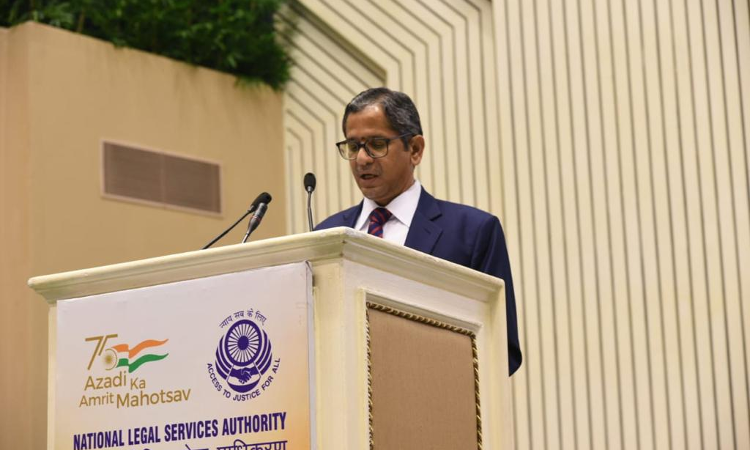Indian Judiciary Has Always Been At The Forefront In Shaping A Welfare State: CJI NV Ramana
Sparsh Upadhyay
14 Nov 2021 3:17 PM IST

Next Story
14 Nov 2021 3:17 PM IST
"Indian judiciary has always been at the forefront to make our country a welfare state. The country's history tells us that the constitutional courts (with the constitution at their hearts) have always stood up for the marginalized", said Chief Justice of India, NV Ramana while speaking at the Valedictory Ceremony of Pan India Legal Awareness & Outreach Campaign.This was a pan India...
